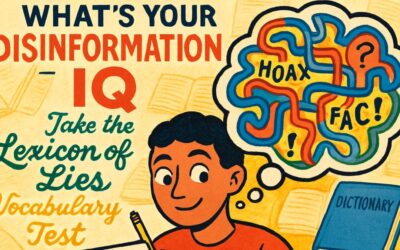Introduction
Welcome to our English Vocabulary Quiz on Lexical Ambiguity! This isn’t just a test; it’s an interactive learning experience designed to sharpen your understanding of the subtleties of the English language. In this quiz, you’ll encounter words that can have multiple meanings, a common challenge for even the most advanced learners. By working through these real-life scenarios, you’ll not only expand your vocabulary but also enhance your ability to understand and use English with greater precision and confidence. Each question, hint, and piece of feedback is crafted to guide you toward a deeper comprehension of how context is key to unlocking the intended meaning of a word. Get ready to challenge yourself and see English vocabulary from a new perspective!
Learning Quiz
This is a learning quiz from English Plus Podcast, in which, you will be able to learn from your mistakes as much as you will learn from the answers you get right because we have added feedback for every single option in the quiz, and to help you choose the right answer if you’re not sure, there are also hints for every single option for every question. So, there’s learning all around this quiz, you can hardly call it quiz anymore! It’s a learning quiz from English Plus Podcast.
Quiz Takeaways | Unlocking the Power of Words – A Journey into Lexical Ambiguity
Hello and welcome! Today, we’re going to embark on a fascinating journey into the world of words, specifically exploring a concept that is both a challenge and a source of richness in the English language: lexical ambiguity. Now, that might sound a bit academic, but I promise you, by the end of our time together, you’ll not only understand what it means, but you’ll also be better equipped to navigate the wonderful complexities of English vocabulary.
So, what exactly is lexical ambiguity? Simply put, it’s when a single word can have more than one meaning. Think of the word ‘bank’. You can have a river bank, or you can have a bank where you deposit money. The word itself doesn’t change, but its meaning does, depending on the context. This is the essence of lexical ambiguity. It’s not about obscure or rarely used words; it’s about the everyday words we use all the time, words that can be surprisingly slippery.
In our quiz, you encountered a variety of words that demonstrate this very concept. Let’s take the word ‘judicious’, for example. In one question, it was used to describe an artist’s use of color. A ‘judicious’ use of color means a wise and careful use of color. But ‘judicious’ can also mean having or showing good judgment in a more general sense. This is a perfect example of how a single word can have subtle but important differences in meaning.
Now, you might be thinking, “This sounds confusing! How am I supposed to know which meaning is intended?” And that’s a great question. The answer lies in one of the most powerful tools you have as a language learner: context. The surrounding words, the situation, the overall tone of the sentence – all of these provide clues that help you decipher the intended meaning.
Let’s look at another example from the quiz: the word ‘fount’. It sounds just like ‘font’, which we all know from our word processors. But a ‘fount’ of knowledge is a source of knowledge. The context of the sentence, “The old professor was a ____ of knowledge,” makes it clear that we’re not talking about typography. This is why paying close attention to the entire sentence is so crucial.
But lexical ambiguity isn’t just about homophones, words that sound the same but have different meanings. It’s also about polysemy, where a single word has multiple related meanings. Think of the word ‘bolster’. In the quiz, we used it to mean ‘support or strengthen’ in the context of a wellness program. But you could also use ‘bolster’ in a more literal sense, to describe propping up a pillow. The core meaning of support is there in both cases, but the application is different.
This is where the real fun of vocabulary building begins. It’s not just about memorizing definitions; it’s about understanding the nuances and connections between words. When you learn a new word, don’t just learn one meaning. Explore its different senses. Look for synonyms and antonyms. See how it’s used in different contexts. This will help you build a richer and more flexible vocabulary.
The quiz also introduced you to some more sophisticated and formal words, like ‘equivocal’, ‘ascetic’, and ‘cogent’. These are words that you might not use in everyday conversation, but they are incredibly useful for expressing complex ideas with precision. An ‘equivocal’ statement is not just unclear; it’s deliberately ambiguous. An ‘ascetic’ lifestyle is not just simple; it’s a life of self-denial. A ‘cogent’ argument is not just convincing; it’s logically sound and well-reasoned.
By learning these words, you’re not just expanding your vocabulary; you’re expanding your ability to think and communicate with greater clarity and sophistication. You’re moving beyond a basic understanding of English and into a deeper appreciation of its power and beauty.
And let’s not forget the importance of connotation, the emotional and cultural associations that a word carries. Take the words ‘autocratic’ and ‘despotic’, for example. Both describe a ruler with absolute power, but ‘despotic’ has a much stronger negative connotation of cruelty and oppression. Choosing the right word depends not just on its dictionary definition, but also on the subtle shades of meaning you want to convey.
So, how can you continue to build your skills in this area? Here are a few tips:
First, read widely. The more you read, the more you’ll encounter words in different contexts. Pay attention to how authors use words to create specific effects. When you come across a word you don’t know, don’t just look up the definition. Look for example sentences. See how it’s used in different situations.
Second, be an active learner. Don’t just passively absorb new words. Use them! Try to incorporate new words into your own writing and speaking. This will help you to internalize their meanings and make them a part of your active vocabulary.
Third, don’t be afraid to make mistakes. Language learning is a journey, and there will be bumps along the way. The important thing is to keep practicing, keep learning, and keep challenging yourself.
The quiz you took today was designed to be a stepping stone on that journey. It was a chance to test your knowledge, to learn from your mistakes, and to discover new words and new ways of thinking about language. I hope you found it to be a valuable and enjoyable experience.
Remember, every word you learn is a new tool in your communication toolbox. The more tools you have, the more you can build, create, and connect with others. So keep exploring, keep learning, and keep unlocking the power of words. Thank you for joining me today.










0 Comments